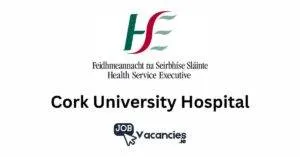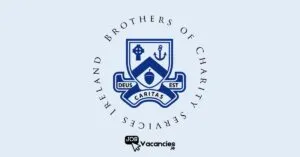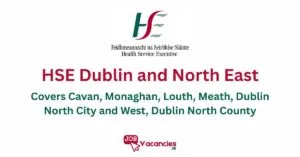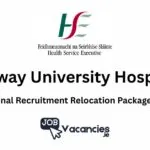Table of Contents
- Table of Contents
- Introduction
- Pro Tip
- Higher Education in Ireland
- Universities and Technological Universities
- Degree Types and Structures
- Application Processes
- Pro Tip
- Vocational Training and Further Education
- Further Education and Training (FET) Sector
- Apprenticeships
- Industry Certifications
- Pro Tip
- Professional Development Courses
- Executive Education
- Continuing Professional Development (CPD)
- Short Courses and Workshops
- Pro Tip
- Online and Distance Learning Options
- Irish Institutions’ Online Offerings
- International E-Learning Platforms
- Effectiveness and Recognition
- Pro Tip
- Funding and Financial Support
- Government Grants and Schemes
- Tax Relief and Incentives
- Scholarships and Bursaries
- Pro Tip
- Industry-Specific Training Programs
- Technology and Digital Skills
- Financial Services
- Healthcare and Life Sciences
- Pro Tip
- Opportunities for International Students and Professionals
- Study Visas and Immigration
- Recognition of Foreign Qualifications
- International Student Support
- Pro Tip
- Qualification Recognition and Frameworks
- National Framework of Qualifications (NFQ)
- Professional Body Recognition
- Quality Assurance in Education
- Pro Tip
- Employer-Supported Education
- Corporate Education Programs
- Negotiating Educational Support
- Balancing Work and Study
- Pro Tip
- Education Pathways for Career Changers
- Conversion Courses
- Skills Assessment and Gap Analysis
- Success Strategies
- Pro Tip
- Lifelong Learning Initiatives
- Adult Education Services
- Non-Formal Learning
- Digital Literacy and Inclusion
- Pro Tip
- Success Stories and Case Studies
- Career Advancement Through Education
- Successful Career Changes
- Overcoming Barriers
- Pro Tip
- Future Trends in Irish Education and Training
- Emerging Learning Models
- Technology in Education
- Skills for the Future Economy
- Pro Tip
- Conclusion
- Related Posts
Education and Training Opportunities in Ireland
Reading time: 15 minutes
Ireland offers a wealth of education and training opportunities for career advancement, professional development, and personal growth. This guide explores the diverse pathways available—from traditional higher education to innovative online learning, vocational training, and industry-specific qualifications—helping you navigate the Irish education landscape to enhance your employability and achieve your career goals.
Introduction
In today’s rapidly evolving job market, continuous learning and skills development have become essential components of career success. Ireland, with its strong educational tradition and growing knowledge economy, offers a diverse range of opportunities for those looking to enhance their qualifications, develop new skills, or pivot to different career paths.
The Irish education and training landscape encompasses world-class universities, innovative further education colleges, specialized training providers, and a growing ecosystem of online learning platforms. This rich environment provides pathways for school leavers, working professionals, career changers, and international students alike.
This guide aims to navigate the complex terrain of education and training in Ireland, helping you understand the options available, how to access them, and how to leverage learning opportunities to advance your career goals. Whether you’re considering a full-time degree, part-time professional certification, or short skills-focused course, understanding the full spectrum of possibilities is the first step toward making informed decisions about your educational journey.
Pro Tip
Before committing to any education or training program, research its reputation among employers in your target industry. Connect with professionals on LinkedIn who have completed the program to get honest feedback about how it contributed to their career progression. This real-world insight often provides more valuable information than marketing materials from education providers.
Higher Education in Ireland
Universities and Technological Universities
Ireland’s university sector offers diverse educational pathways:
- Traditional Universities: Ireland has seven traditional universities, including Trinity College Dublin, University College Dublin, and University College Cork, offering a wide range of undergraduate and postgraduate programs.
- Technological Universities: Recently established institutions like Technological University Dublin and Munster Technological University combine academic excellence with practical, industry-focused education.
- Specialized Institutions: Colleges like the Royal College of Surgeons in Ireland and National College of Art and Design provide focused education in specific disciplines.
- Private Universities: Institutions such as Dublin Business School and Griffith College offer alternative higher education pathways, often with flexible study options.
- Research Excellence: Irish universities are known for research strengths in areas including technology, life sciences, humanities, and social sciences.
Degree Types and Structures
Understanding the different qualification levels available:
- Honours Bachelor’s Degrees: Typically three to four years of full-time study, providing comprehensive knowledge in a specific field.
- Ordinary Bachelor’s Degrees: Usually three years in duration, offering a foundation in a subject area.
- Higher Certificates: Two-year programs providing introductory skills and knowledge in particular areas.
- Master’s Degrees: One to two years of specialized study, often including research components or professional practice.
- Postgraduate Diplomas and Certificates: Shorter postgraduate qualifications focusing on specific professional skills.
- Doctoral Degrees (PhDs): Research-focused degrees typically taking three to four years to complete.
- Professional Doctorates: Advanced practice-based qualifications in fields like education, business, and psychology.
Application Processes
Navigating admissions to Irish higher education:
- Central Applications Office (CAO): The primary application system for undergraduate courses for school leavers.
- Direct Applications: Many postgraduate programs, mature student entries, and private college courses require direct applications to institutions.
- Recognition of Prior Learning (RPL): Processes for acknowledging previous qualifications and experience for course entry or advanced standing.
- International Applications: Specific procedures and requirements for students from outside Ireland, including visa considerations.
- Part-time and Flexible Entry: Alternative application routes for those studying while working.
- Timing Considerations: Key application deadlines and academic calendar information.
- Supporting Documentation: Requirements for transcripts, references, personal statements, and portfolios.
Pro Tip
If you’re considering a return to higher education as a mature student (23+ years), take advantage of the dedicated access programs and alternative entry routes offered by most Irish universities. These pathways often consider work experience and demonstrated potential alongside formal academic qualifications, making higher education more accessible for those without traditional entry requirements.
Vocational Training and Further Education
Further Education and Training (FET) Sector
Ireland’s comprehensive vocational education system includes:
- Education and Training Boards (ETBs): 16 regional bodies providing a wide range of vocational programs across Ireland.
- Post Leaving Certificate (PLC) Courses: One to two-year programs combining practical training with classroom learning in specific vocational areas.
- Traineeships: Occupation-specific training combining classroom instruction with workplace learning.
- Specific Skills Training: Intensive courses focused on particular skills needed in the labor market.
- Evening Courses: Part-time vocational training options for those working during the day.
- Community Education: Locally-based programs addressing specific community needs and interests.
- SOLAS: The national Further Education and Training authority that coordinates and funds programs.
Apprenticeships
Earn-while-you-learn opportunities in various industries:
- Traditional Apprenticeships: Programs in crafts and trades such as electrical, plumbing, carpentry, and motor mechanics.
- New Apprenticeship Models: Recently developed programs in areas like insurance, accounting, ICT, and hospitality.
- Structure and Duration: Typically combining on-the-job training (70%) with off-the-job learning (30%) over 2-4 years.
- Qualification Levels: Apprenticeships leading to qualifications from Level 5 to Level 10 on the National Framework of Qualifications.
- Employer Engagement: How companies participate in and support apprenticeship programs.
- Entry Requirements: Varying prerequisites depending on the specific apprenticeship field.
- Progression Opportunities: Pathways from apprenticeships to further education and career advancement.
Industry Certifications
Recognized qualifications for specific sectors:
- IT Certifications: Industry-recognized credentials from providers like Microsoft, Cisco, and CompTIA.
- Financial Services Qualifications: Professional certifications in accounting, banking, and financial planning.
- Healthcare Certifications: Specialized qualifications for various healthcare roles and technologies.
- Construction Industry Certifications: Safety, technical, and management qualifications for construction professionals.
- Hospitality and Tourism Qualifications: Specialized training for roles in Ireland’s significant tourism sector.
- Transport and Logistics Certifications: Qualifications for specific roles in supply chain and transportation.
- Retail and Customer Service Credentials: Recognized training for service industry positions.
Pro Tip
Don’t overlook the value of Ireland’s expanded apprenticeship system, which now covers many professional fields beyond traditional trades. These programs offer the significant advantage of earning while learning, avoiding student debt, and often lead to higher employment rates than some traditional academic pathways. Many employers value the practical experience gained through apprenticeships as much as or more than purely academic qualifications.
Professional Development Courses
Executive Education
Advanced learning for experienced professionals:
- Business School Programs: Short courses and certificates from institutions like UCD Smurfit, Trinity Business School, and IMI.
- Leadership Development: Programs focused on enhancing management and leadership capabilities.
- Industry-Specific Executive Programs: Specialized courses for particular sectors and functions.
- Format Options: Modular programs, weekend intensives, and blended learning approaches designed for working professionals.
- Corporate Customization: Tailored programs developed for specific organizations and teams.
- Networking Opportunities: Peer learning and connection-building with other professionals.
- International Partnerships: Access to global faculty and business perspectives through institutional collaborations.
Continuing Professional Development (CPD)
Ongoing learning requirements and opportunities in regulated professions:
- Professional Body Requirements: Mandatory CPD for fields like law, accounting, medicine, and engineering.
- CPD Providers: Accredited organizations offering recognized professional development activities.
- Formats and Activities: Workshops, seminars, conferences, online modules, and self-directed learning.
- Recording and Verification: Systems for tracking and validating CPD completion.
- Point Systems: How different activities contribute to annual CPD requirements.
- Cross-Border Recognition: International validity of Irish CPD activities.
- Emerging Trends: Evolution of CPD approaches to incorporate new learning methodologies.
Short Courses and Workshops
Focused learning opportunities for specific skills:
- Technical Skills Training: Practical courses in areas like programming, data analysis, and digital marketing.
- Soft Skills Development: Programs focusing on communication, negotiation, and interpersonal effectiveness.
- Creative and Design Courses: Workshops in areas like UX design, graphic design, and content creation.
- Language Training: Courses for business language skills, including English for non-native speakers.
- Compliance and Regulatory Training: Updates on changing legal and regulatory requirements.
- Innovation and Entrepreneurship: Workshops on design thinking, lean startup, and business model development.
- Wellbeing and Resilience: Programs supporting professional effectiveness through personal development.
Pro Tip
When selecting professional development courses, prioritize those that include applied projects or assessments where you solve real workplace challenges. These practical components not only reinforce learning but also generate tangible work products you can showcase to employers as evidence of your capabilities. Additionally, they often provide more immediate return on investment by addressing current professional challenges.
Online and Distance Learning Options
Irish Institutions’ Online Offerings
Digital learning options from established education providers:
- University Online Programs: Full degrees and certificates offered through distance learning by Irish universities.
- Blended Learning Models: Programs combining online components with periodic in-person sessions.
- Technological Universities’ Digital Platforms: Online learning environments from Ireland’s newer technical institutions.
- Further Education Online Courses: Digital versions of vocational and skills-based programs.
- Professional Body E-Learning: Online CPD and certification options from industry associations.
- Micro-credentials: Short, focused online courses leading to digital badges or certificates.
- Virtual Classrooms: Synchronous online learning experiences with real-time interaction.
International E-Learning Platforms
Global online learning resources accessible in Ireland:
- MOOC Providers: Courses from platforms like Coursera, edX, and FutureLearn, often featuring content from top global universities.
- Skills-Focused Platforms: Specialized learning sites like Udemy, LinkedIn Learning, and Pluralsight.
- Coding and Tech Bootcamps: Intensive online programs for digital skills development.
- Language Learning Platforms: Digital resources for developing proficiency in foreign languages.
- Industry-Specific Learning Hubs: Specialized platforms for particular professional fields.
- Virtual Reality and Simulation Learning: Immersive online training experiences.
- Global Professional Certifications: Internationally recognized credentials available through online study.
Effectiveness and Recognition
Considerations for online learning quality and credibility:
- Accreditation Status: How to verify the recognition of online qualifications in Ireland.
- Employer Perceptions: How Irish companies view credentials earned through online learning.
- Quality Indicators: Features that distinguish high-quality online programs.
- Assessment Integrity: How online programs verify learning and prevent academic dishonesty.
- Technical Requirements: Infrastructure needed for successful online learning.
- Self-Discipline Strategies: Approaches for maintaining motivation and progress in self-paced learning.
- Networking Limitations: How to address the reduced peer interaction in online environments.
Pro Tip
When pursuing online learning, create accountability structures to increase your completion rates. This might include joining or forming a study group with others taking the same course, scheduling specific learning times in your calendar, or setting up regular progress reviews with a mentor. Additionally, immediately apply new knowledge in practical projects—even small ones—to reinforce learning and create portfolio pieces that demonstrate your skills.
Funding and Financial Support
Government Grants and Schemes
Public funding options for education and training:
- SUSI (Student Universal Support Ireland): Grants for undergraduate and postgraduate study based on financial need.
- Back to Education Allowance: Support for those returning to education from unemployment or certain social welfare payments.
- Springboard+: Free or subsidized courses in areas of skills shortage for jobseekers and those in employment.
- Human Capital Initiative: Funding for additional higher education places in priority skills areas.
- Skillnet Ireland: Subsidized training through industry-led learning networks.
- ETB Training Allowances: Financial support for participants in certain full-time training programs.
- Part-time Education Option: Allowing retention of some social welfare benefits while studying part-time.
Tax Relief and Incentives
Financial benefits through the tax system:
- Tuition Fee Tax Relief: Tax credits for fees paid for approved courses at recognized institutions.
- Training Course Fees: Tax treatment of work-related education expenses.
- Revenue-Approved Courses: Specific programs qualifying for enhanced tax benefits.
- Employer Tax Incentives: Benefits for companies investing in employee education.
- Self-Employed Education Expenses: Tax treatment for professional development costs.
- Documentation Requirements: Records needed to claim education-related tax benefits.
- Annual Limits: Maximum relief available and restrictions that apply.
Scholarships and Bursaries
Merit and need-based funding opportunities:
- University Scholarships: Institution-specific awards based on academic achievement or other criteria.
- Industry-Sponsored Programs: Funding from companies for students in relevant fields.
- Professional Body Bursaries: Support from industry associations for those entering their field.
- Access Scholarships: Funding aimed at increasing participation from underrepresented groups.
- Research Scholarships: Funding for postgraduate research in specific areas.
- International Scholarships: Awards specifically for students from outside Ireland.
- Application Strategies: Tips for successful scholarship applications.
Pro Tip
Don’t overlook Springboard+ courses, which offer free or heavily subsidized education in areas of skills shortage. These programs are available to employed people (90% subsidized) as well as job seekers (100% free), and include many high-demand qualifications in areas like data analytics, cybersecurity, and sustainable energy. The application process is straightforward, and courses are designed to accommodate working professionals with evening and weekend options.
Industry-Specific Training Programs
Technology and Digital Skills
Training for Ireland’s growing tech sector:
- Coding Bootcamps: Intensive programs teaching programming and software development skills.
- IT Professional Certifications: Vendor-specific qualifications from companies like Microsoft, AWS, and Google.
- Cybersecurity Training: Specialized programs addressing the growing demand for security professionals.
- Data Science and Analytics: Courses developing skills in data manipulation, visualization, and interpretation.
- UX/UI Design: Programs focused on user experience and interface design.
- Digital Marketing: Training in SEO, social media, content marketing, and analytics.
- Technology Apprenticeships: Earn-while-you-learn opportunities in IT fields.
Financial Services
Education for Ireland’s significant financial sector:
- Banking Qualifications: Professional certifications for retail and commercial banking.
- Insurance Industry Training: Programs for underwriting, claims, and insurance operations.
- Investment and Funds: Specialized training for Ireland’s substantial funds industry.
- Accounting Certifications: Pathways to qualifications from bodies like ACCA, CIMA, and CPA Ireland.
- FinTech Skills Development: Training at the intersection of finance and technology.
- Compliance and Regulation: Programs focused on financial regulatory frameworks.
- Financial Planning: Qualifications for personal financial advice and planning.
Healthcare and Life Sciences
Training for medical and pharmaceutical fields:
- Nursing and Healthcare Assistant Programs: Qualifications for direct patient care roles.
- Pharmaceutical Manufacturing: Training for Ireland’s significant pharma production sector.
- Medical Device Industry: Programs specific to medical technology development and production.
- Laboratory Techniques: Training in scientific procedures and quality control.
- Healthcare Administration: Programs for non-clinical roles in medical settings.
- Continuing Medical Education: Ongoing professional development for qualified practitioners.
- Health Informatics: Training at the intersection of healthcare and information technology.
Pro Tip
When pursuing industry-specific training, look for programs that have been developed in direct collaboration with employers. These industry-informed courses often include the most current skills and technologies being used in the workplace and frequently have higher employment rates. Ask education providers about their industry advisory boards, work placement components, and employment outcomes for recent graduates.
Opportunities for International Students and Professionals
Study Visas and Immigration
Legal frameworks for international learners:
- Student Visa Requirements: Eligibility criteria and application processes for non-EEA nationals.
- Stamp 2 Conditions: Regulations governing international student status in Ireland.
- Working While Studying: Permitted employment hours and conditions for international students.
- Third Level Graduate Scheme: Post-study work opportunities for international graduates.
- Language Requirements: English proficiency standards for different programs.
- Health Insurance: Coverage requirements for international students.
- Long-Term Pathways: Options for transitioning from study to work to permanent residence.
Recognition of Foreign Qualifications
Processes for validating international credentials:
- NARIC Ireland: The national agency for recognition of international qualifications.
- Qualification Comparability: How foreign degrees relate to Irish qualification frameworks.
- Professional Recognition: Processes for regulated professions like medicine, law, and teaching.
- Documentation Requirements: Necessary paperwork for qualification assessment.
- Bridging Programs: Options for addressing gaps between international and Irish qualifications.
- Translation Services: Requirements for non-English documentation.
- Recognition Costs: Fees associated with qualification validation processes.
International Student Support
Resources for those studying in Ireland from abroad:
- University International Offices: Dedicated support services for foreign students.
- Accommodation Assistance: Help with finding housing in challenging rental markets.
- Cultural Integration: Programs helping international students adapt to Irish society.
- English Language Support: Additional resources for non-native English speakers.
- Financial Guidance: Advice on managing costs and understanding Irish banking.
- Career Services: Specialized support for international students seeking employment.
- Community Networks: Groups connecting international students from similar backgrounds.
Pro Tip
International students should begin career planning early in their studies, ideally from their first semester. Ireland’s Third Level Graduate Programme allows non-EU/EEA students to remain in Ireland for 1-2 years after graduation to seek employment, but competition can be intense. Building professional networks, gaining Irish work experience through internships, and understanding which sectors sponsor work permits should be part of your education strategy from the beginning.
Qualification Recognition and Frameworks
National Framework of Qualifications (NFQ)
Understanding Ireland’s qualification structure:
- 10-Level System: The structure ranging from basic certificates (Level 1) to doctoral degrees (Level 10).
- Award Types: Major, minor, special purpose, and supplemental qualifications.
- Awarding Bodies: Organizations authorized to issue NFQ-recognized qualifications.
- Quality Assurance: Processes ensuring the standard of qualifications.
- Credit System: How learning achievements are quantified and accumulated.
- Progression Routes: Pathways between different qualification levels.
- European Alignment: How the NFQ relates to European qualification frameworks.
Professional Body Recognition
Industry validation of qualifications and competence:
- Regulated Professions: Fields requiring specific recognized qualifications and registration.
- Voluntary Professional Bodies: Organizations providing industry recognition and standards.
- Chartership Pathways: Routes to achieving chartered status in professional fields.
- Continuing Professional Development: Ongoing requirements to maintain professional standing.
- International Reciprocity: Cross-border recognition of Irish professional qualifications.
- Professional Examinations: Assessment processes for professional body membership.
- Experience Requirements: Practical work components needed alongside formal qualifications.
Quality Assurance in Education
Systems ensuring educational standards:
- Quality and Qualifications Ireland (QQI): The national agency responsible for quality assurance.
- Institutional Review: Processes for evaluating education providers.
- Program Validation: Approval procedures for new courses and qualifications.
- External Examination: Independent verification of assessment standards.
- Learner Protection: Safeguards for students if programs are discontinued.
- International Quality Standards: Global benchmarking of Irish education.
- Industry Input: How employer needs inform quality standards.
Pro Tip
When evaluating educational programs, always check their status on the National Framework of Qualifications (NFQ). Programs with NFQ recognition have undergone rigorous quality assurance processes and are generally more widely recognized by employers. For professional fields, also verify whether the qualification is recognized by relevant industry bodies, as this dual validation—academic and professional—often provides the strongest employment outcomes.
Employer-Supported Education
Corporate Education Programs
How organizations support employee learning:
- Tuition Assistance Schemes: Company programs that fund employee education.
- Study Leave Policies: Time off arrangements for educational pursuits.
- Corporate Universities: In-house learning programs developed by larger organizations.
- Graduate Development Programs: Structured learning for early-career professionals.
- Industry-Education Partnerships: Collaborative programs between employers and institutions.
- Return on Investment Expectations: How companies evaluate the value of education support.
- Service Commitments: Post-education employment obligations in exchange for funding.
Negotiating Educational Support
Strategies for securing employer backing:
- Building Business Cases: How to demonstrate the value of education to employers.
- Timing Considerations: When to approach management about educational support.
- Partial Funding Options: Alternatives when full sponsorship isn’t available.
- Performance-Based Support: Linking educational assistance to work achievements.
- Flexible Arrangements: Alternative support beyond direct financial assistance.
- Contract Negotiations: Including education benefits in employment agreements.
- Demonstrating Application: Showing how learning will benefit the organization.
Balancing Work and Study
Managing concurrent professional and educational commitments:
- Time Management Strategies: Approaches for juggling work, study, and personal life.
- Workplace Support Systems: Engaging colleagues and managers in your educational journey.
- Applied Learning Projects: Integrating coursework with workplace challenges.
- Technology Tools: Digital resources that facilitate efficient learning.
- Stress Management: Techniques for maintaining wellbeing during intensive periods.
- Setting Boundaries: Establishing clear parameters for work and study time.
- Career Progression Planning: Strategically applying new knowledge for advancement.
Pro Tip
When approaching your employer for educational support, frame your request in terms of specific organizational benefits rather than personal career advancement. Prepare a concise proposal that outlines how your learning will address current business challenges, bring new capabilities to your team, or help the company adapt to industry changes. Include a clear implementation plan showing how you’ll apply your learning directly to your role, minimizing disruption while maximizing return on their investment.
Education Pathways for Career Changers
Conversion Courses
Programs designed for transition to new fields:
- Technology Conversion Masters: Intensive programs helping non-tech graduates enter IT careers.
- Business for Non-Business Graduates: Programs providing commercial skills to those from other disciplines.
- Healthcare Conversions: Pathways for graduates to enter medical and health professions.
- Legal Conversion Courses: Routes for non-law graduates to pursue legal careers.
- Education and Teaching: Programs enabling subject specialists to become qualified teachers.
- Duration and Intensity: Timeframes and workload considerations for different conversion options.
- Entry Requirements: Prerequisites and selection criteria for career changers.
Skills Assessment and Gap Analysis
Evaluating and addressing competency needs:
- Skills Auditing: Processes for identifying transferable and missing competencies.
- Recognition of Prior Learning: Getting credit for existing knowledge and experience.
- Targeted Upskilling: Focused learning addressing specific competency gaps.
- Career Guidance Services: Professional support for career transition planning.
- Self-Assessment Tools: Resources for evaluating skills and interests.
- Industry Requirements Research: Understanding qualification needs in target sectors.
- Portfolio Development: Documenting relevant capabilities for new career areas.
Success Strategies
Approaches for effective career transitions:
- Networking in New Fields: Building connections in target industries while studying.
- Internships and Work Experience: Gaining practical exposure in new career areas.
- Mentorship: Learning from experienced professionals in desired fields.
- Professional Association Involvement: Engaging with industry bodies during transition.
- Personal Branding: Repositioning professional identity for new career contexts.
- Financial Planning: Managing resources during career change periods.
- Resilience Building: Developing capacity to navigate transition challenges.
Pro Tip
Before committing to a full career change program, test your interest and aptitude through shorter, lower-investment options like evening courses, online modules, or volunteering in the field. This “try before you buy” approach can help confirm your interest while building relevant experience. Additionally, conduct informational interviews with professionals who have made similar transitions to understand the realities of the field and identify the most valued entry routes and qualifications.
Lifelong Learning Initiatives
Adult Education Services
Resources for mature learners:
- Adult Education Guidance: Specialized advisory services for mature learners.
- Adult Literacy Programs: Support for developing fundamental reading and writing skills.
- Community Education: Local learning initiatives addressing specific community needs.
- Adult Education Centers: Dedicated facilities for mature student education.
- Evening and Weekend Courses: Flexible learning options for those with daytime commitments.
- Return to Learning Programs: Structured support for adults re-entering education.
- Digital Skills for Adults: Programs addressing technology literacy for older learners.
Non-Formal Learning
Educational opportunities outside traditional structures:
- Public Libraries: Learning resources, workshops, and programs available through library networks.
- Community Groups: Educational activities organized by local organizations.
- Cultural Institutions: Learning programs offered by museums, galleries, and arts centers.
- Study Circles: Self-organized groups exploring specific topics or skills.
- Public Lectures and Talks: Open educational events hosted by various organizations.
- Skill-Sharing Networks: Community-based knowledge exchange initiatives.
- Volunteer Learning: Skill development through community service activities.
Digital Literacy and Inclusion
Ensuring technology access and skills for all:
- Basic Digital Skills Programs: Introductory training for those new to technology.
- Digital Inclusion Initiatives: Projects addressing barriers to technology access.
- Online Safety Education: Programs on secure and responsible internet use.
- Digital Literacy for Employment: Technology skills specifically for workplace contexts.
- Assistive Technology Training: Support for using adaptive digital tools.
- Intergenerational Digital Projects: Programs connecting different age groups through technology.
- Public Access Points: Facilities providing internet and computer access for learning.
Pro Tip
Embrace the concept of “learning ecosystems” by combining different types of educational experiences. For example, supplement formal courses with community workshops, online forums, podcasts, and self-directed projects. This diverse approach not only accommodates different learning styles but also builds a more robust and adaptable skill set. Additionally, consider joining or creating a learning circle—a small group of people who meet regularly to support each other’s educational goals—which can significantly increase motivation and completion rates.
Success Stories and Case Studies
Career Advancement Through Education
Examples of professional growth through learning:
- Mid-Career Qualification Upgrades: Professionals who enhanced their positions through additional education.
- Promotion Pathways: How specific learning experiences led to career advancement.
- Salary Progression: Financial returns on educational investment.
- New Role Transitions: Moving to more desirable positions through targeted learning.
- Industry Recognition: Achieving professional standing through education.
- Leadership Development: Journeys from technical to management roles via learning.
- Entrepreneurial Launches: Education as a foundation for starting businesses.
Successful Career Changes
Stories of significant professional transitions:
- Industry Switchers: Individuals who moved between different sectors through education.
- Technical to Non-Technical: Transitions from specialized to broader career areas.
- Non-Technical to Technical: Moves into technology and other specialized fields.
- Public to Private Sector: Transitions between government and commercial environments.
- Traditional to Emerging Fields: Shifts into newly developing professional areas.
- Practical to Academic: Moves from industry into research and teaching.
- Local to International: Using Irish education to access global opportunities.
Overcoming Barriers
Inspiring examples of educational persistence:
- Second-Chance Success: Achievements of those who returned to education after early challenges.
- Balancing Family and Study: Parents who completed qualifications while raising children.
- Financial Constraint Navigation: Creative approaches to funding educational journeys.
- Learning Difference Accommodation: Success despite dyslexia, ADHD, and other learning challenges.
- Geographic Barrier Solutions: Rural and remote learners accessing quality education.
- Language and Cultural Transitions: International students thriving in Irish education.
- Age-Related Challenge Management: Mature students succeeding in youth-dominated environments.
Pro Tip
When facing educational challenges, seek out people who have overcome similar obstacles. Most institutions have alumni networks or can connect you with graduates who navigated comparable situations. These “near-peer” mentors can provide practical strategies, emotional support, and realistic expectations based on recent experience. Their guidance is often more immediately applicable than general advice and can significantly increase your resilience during difficult periods.
Future Trends in Irish Education and Training
Emerging Learning Models
Evolving approaches to education delivery:
- Micro-credentials: Short, focused qualifications addressing specific skills needs.
- Competency-Based Education: Programs focused on demonstrable abilities rather than time spent.
- Hybrid Learning: Blended approaches combining online and in-person experiences.
- Subscription Learning: Ongoing access models rather than one-time course purchases.
- Experiential Learning: Increased emphasis on practical application and real-world projects.
- Personalized Learning Pathways: Customized education journeys based on individual needs and goals.
- Collaborative Learning Networks: Connected communities supporting mutual development.
Technology in Education
Digital innovations shaping learning experiences:
- Artificial Intelligence: Personalized learning support and administrative automation.
- Virtual and Augmented Reality: Immersive learning environments for complex skills.
- Learning Analytics: Data-driven insights improving educational effectiveness.
- Blockchain Credentials: Secure, verifiable qualification records.
- Mobile Learning: Education optimized for smartphone and tablet access.
- Gamification: Engagement-enhancing game elements in learning experiences.
- Adaptive Learning Systems: Technology that adjusts to individual progress and needs.
Skills for the Future Economy
Emerging competency needs in the Irish workforce:
- Green Skills: Capabilities supporting sustainability and environmental management.
- Digital Transformation: Competencies for technology-driven workplace evolution.
- Human-AI Collaboration: Abilities to work effectively alongside artificial intelligence.
- Advanced Data Literacy: Sophisticated capabilities in data interpretation and application.
- Cross-Cultural Competence: Skills for global and diverse workplace environments.
- Adaptive Thinking: Capacity to respond effectively to rapid change and uncertainty.
- Ethical Technology Use: Understanding responsible approaches to emerging technologies.
Pro Tip
As education evolves, focus on developing a portfolio of micro-credentials that demonstrate specific, in-demand skills rather than relying solely on traditional qualifications. These shorter, targeted credentials allow you to quickly adapt to changing industry needs and provide concrete evidence of your capabilities to employers. Look for micro-credentials that are stackable (can be combined toward larger qualifications) and are developed in partnership with industry to ensure maximum recognition and relevance.
Conclusion
Ireland’s education and training landscape offers a rich array of opportunities for personal and professional development. From traditional university degrees to innovative online learning, vocational training, and industry-specific programs, the pathways available cater to diverse needs, circumstances, and career goals.
Navigating this complex environment effectively requires understanding the various options, their recognition and quality assurance, funding possibilities, and how different learning experiences align with career objectives. It also involves recognizing that education is increasingly a lifelong journey rather than a one-time event, with continuous learning becoming essential in a rapidly evolving economy.
The most successful approaches to education and training in Ireland typically involve strategic planning, combining different types of learning experiences, leveraging available support systems, and maintaining a clear focus on how educational investments translate into career outcomes. By thoughtfully engaging with the opportunities outlined in this guide, you can develop the knowledge, skills, and qualifications that will enhance your employability and career progression in Ireland’s dynamic job market.
Whether you’re a school leaver planning your initial education path, a professional seeking to advance in your current field, someone contemplating a career change, or an international student considering Irish educational opportunities, the country’s learning ecosystem offers pathways to help you achieve your goals. The key is to approach these opportunities with clear objectives, informed decision-making, and a commitment to applying your learning effectively in professional contexts.








